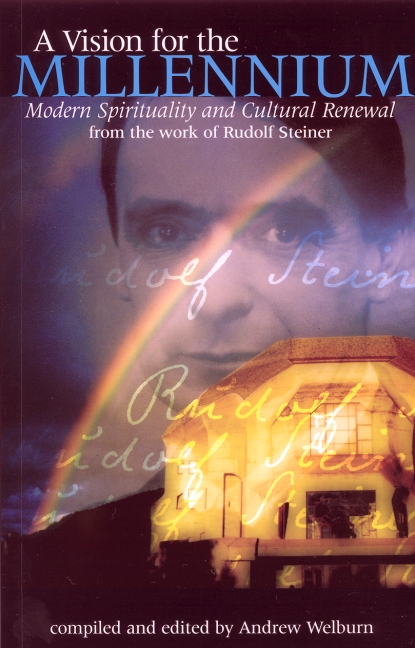A Vision for the Millennium: Modern Spirituality and Cultural Renewal
Compiled and edited by Andrew Welburn from the work of Rudolf Steiner
“Could it not be possible that today something of infinite importance is taking place without people being aware of it. Something of supreme importance is taking place, although it is perceptible only to the eye of the spirit.”—Rudolf Steiner
For many, the new millennium has come to symbolize a new beginning—a time to stop, reassess, and question our direction as individuals and as a society. It is also a time to reexamine our philosophies and values. This collection of excerpts from his many books and lectures provides an excellent introduction to his spiritual, millennial vision. It includes commentary on the significance of the coming transformation of all areas of life, the importance of spiritual ecology, the transfiguration of the Earth, and the roles of angelic and other spiritual beings in our time.
CONTENTS:
Foreword by Andrew Welburn
1. A Spiritual Perspective
2. The Turn of the Millennium
3. The Etheric or Life-sphere and the New Awareness of Christ
4. Building for the Future: The Rediscover of Form
5. Educating for the Future: Love and Knowledge in the Waldorf School
6. Working with the Future
7. The Michael Imagination: The Angel of Humanity
About the Author
Rudolf Steiner (1861–1925) was born in the small village of Kraljevec, Austro-Hungarian Empire (now in Croatia), where he grew up. As a young man, he lived in Weimar and Berlin, where he became a well-published scientific, literary, and philosophical scholar, known especially for his work with Goethe’s scientific writings. At the beginning of the twentieth century, he began to develop his early philosophical principles into an approach to systematic research into psychological and spiritual phenomena. Formally beginning his spiritual teaching career under the auspices of the Theosophical Society, Steiner came to use the term Anthroposophy (and spiritual science) for his philosophy, spiritual research, and findings. The influence of Steiner’s multifaceted genius has led to innovative and holistic approaches in medicine, various therapies, philosophy, religious renewal, Waldorf education, education for special needs, threefold economics, biodynamic agriculture, Goethean science, architecture, and the arts of drama, speech, and eurythmy. In 1924, Rudolf Steiner founded the General Anthroposophical Society, which today has branches throughout the world. He died in Dornach, Switzerland.
Andrew Welburn is a fellow of New College, Oxford. He has written, translated, and edited numerous books on spiritual science and early Christianity, including The Beginnings of Christianity: Essene Mystery, Gnostic Revelation and the Christian Vision (1991); Gnosis: The Mysteries and Christianity (1994); and Myth of the Nativity: The Virgin Birth Re-examined (2006).











Reviews
There are no reviews yet